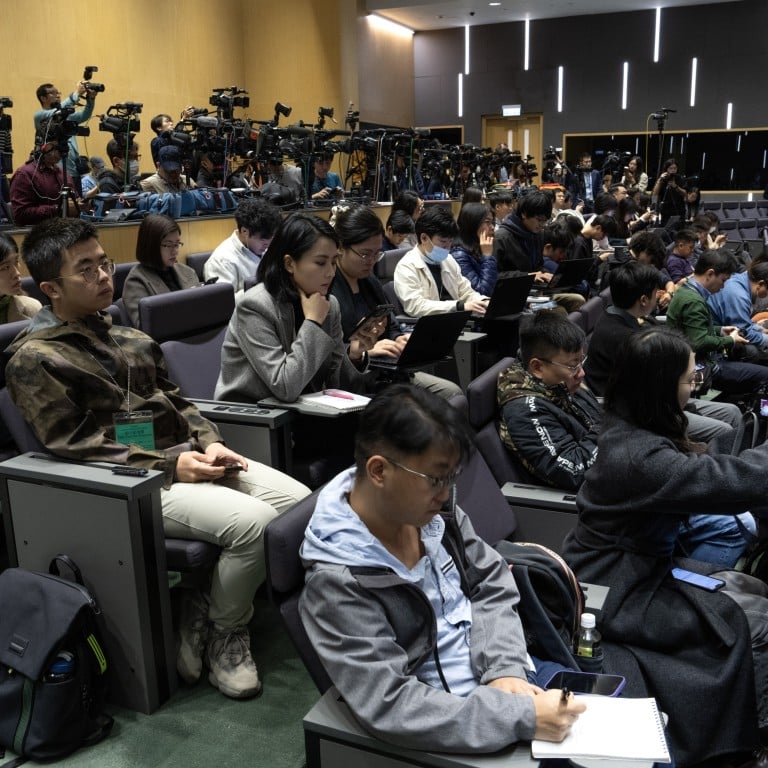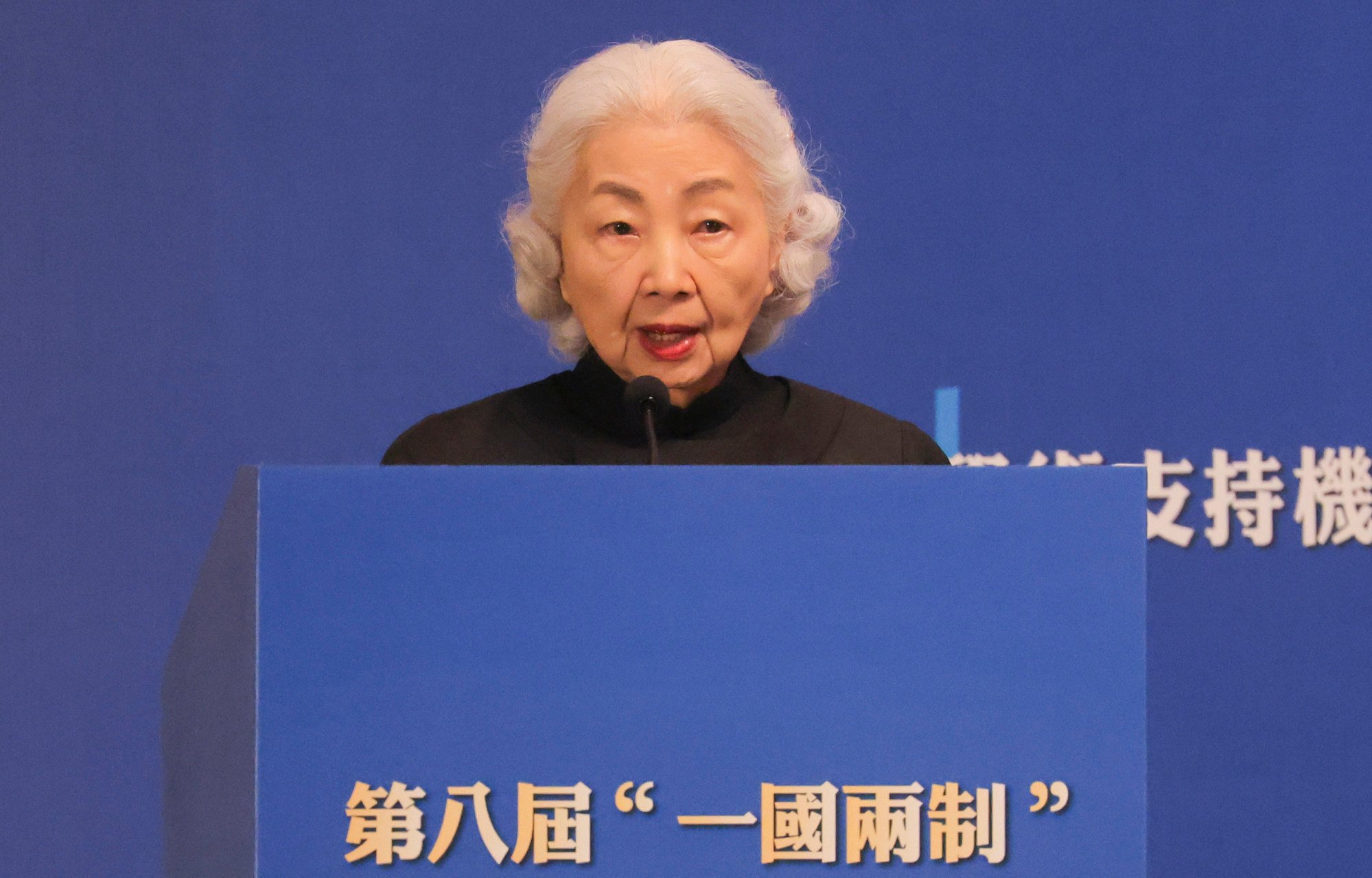
Hong Kong’s domestic national security law risks ‘irrevocable damage’ to press freedom with broadly defined offences: journalism group
- Hong Kong Journalists Association calls for incorporation of public interest defence into home-grown national security legislation
- ‘Journalism serves to enhance transparency in public governance, as well as promote good governance. The press is not a threat to national security,’ association says
The Hong Kong Journalists Association on Saturday called for the government to protect actions taken in the public interest under the law, adding the legislation should include a requirement for proof of harm to national security and intent to undertake such actions.
“Journalism serves to enhance transparency in public governance, as well as promote good governance. The press is not a threat to national security,” it wrote in a submission to the Security Bureau.
“[The association] urges the government to provide sufficient protection for the press in its draft bill and avoid causing irrevocable damage to press freedom.”

Elsie Leung Oi-sie, former vice-chairwoman of the Basic Law Committee, said there were advantages and disadvantages to including a public interest defence in the legislation.
“The good thing is people will have peace of mind about the law. But when you introduce a legal term, they may have different understandings and also misunderstandings,” she told a television programme.
She warned that some people could misinterpret the definition of public interest and unknowingly fall foul of the law.
“People may think very subjectively that they have the right to disclose [state secrets] because they concern the public interest. This will cause them to step into a legal minefield,” she said.
Include public interest defence in Article 23 bill: Hong Kong Bar Association
But a pro-establishment journalist group hit out at the association’s statement, saying that the coming home-grown national security law posed no threats to the industry.
The Hong Kong Federation of Journalists accused its counterpart of “distorting the truth” and “introducing paranoia” with its concerns, adding that reporters would not have to worry about breaching the law as long as they carried out their work without any intentions or actions to harm national security.
A federation spokesman said authorities had already addressed journalists’ concerns more than once in detail, and had made assurances that the law would not harm press freedom.
“The Hong Kong Journalists Association has put forward press freedom and national security in an antagonistic manner, publishing opinions that mislead the public. Are they feigning foolishness or harbouring ulterior motives?” the spokesman said.
Include public interest defence in Article 23 bill: Hong Kong Bar Association
The proposed law introduces five new types of offences comprising treason, insurrection, sabotage, foreign interference, and theft of state secrets and espionage.
The journalist group raised concerns over the proposal’s definitions of “state secrets”, which span seven areas that include economic and social development, technological development and scientific technology.
“Their broad and vague definitions make it hard for journalists to make sound judgment on what could constitute a threat to national security,” the association said. “This could create a chilling effect, deterring the press from doing relevant reporting due to legal concerns.”
More ‘smears’ by ‘external forces’ expected over Hong Kong security law: Chris Tang
Leaks from government sources, covering topics such as personnel changes, police investigations and policymaking, were an “integral part” of journalistic work, it said.
The association added it was difficult for reporters to determine whether sources were disclosing information with lawful authority.
It urged authorities to clarify whether the definition of state secrets was limited to internal documents from the local and central governments or whether it covered sources outside the administration.
The journalist group raised concerns over the definition of foreign interference, which will prohibit acts of interference “by improper means” in collaboration with “an external force” to influence policy formation and execution, among other areas.
One area of concern was whether people who criticised officials or spoke unfavourably about the government could be considered to be “knowingly making a material misrepresentation” or “threatening to damage a person’s reputation”, with both acts defined as improper means, it explained.
Top Beijing official expected to meet tycoons, professional bodies in Hong Kong
Foreign public media services or news organisations that received funding from their governments, as well as their employees, could be classified as “external forces” under the new espionage offence, it warned.
The association also said the government’s proposal to expand the scope and increase penalties for offences related to “sedition intention” risked further limiting free speech and press freedoms.
It urged authorities to introduce safeguards for media outlets and journalists in the proposed law’s definition of offences.
A government spokesman said the submission from the association would “be treated in the same way as other public opinion”.
Hong Kong security chief slams US claims national security law would target media
Earlier in the week, security minister Chris Tang Ping-keung refuted what he called a “false” report by US-funded news outlet Radio Free Asia that suggested the proposed law was designed to target the media.
While he refused to say whether Radio Free Asia’s report could be covered by the proposed law’s espionage offence as violations “cannot be discussed in general terms”, he argued that attempts to spread misinformation should be called out.
Former Basic Law Committee member Leung also defended the proposed definition of “seditious intention”, arguing it could tackle such acts that involved non-violent methods, such as the use of social media.
The proposed definition covers acts that invoke hatred, contempt or disaffection against the central and local branches of government.
“Violence is not the only means for carrying out sedition. The media, especially social media, can have a very big influence on certain people,” she said.
“You can see that from the trial of [media tycoon] Jimmy Lai Chee-ying, non-violent means can have a big influence on people.”


